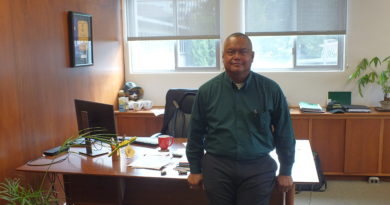Opinion: We didn’t cross the border, the border crossed us
Within the first week of Donald J. Trump’s return to presidential office, he immediately began his plans to target undocumented folks. It has been really infuriating hearing the president spew his racist beliefs about immigration, especially in his continual attempts to dehumanize migrants. An increased presence of ICE raids have already spiked all across the country, targeting public spaces, businesses and even schools.
The anti-immigrant rhetoric that is being disseminated by those in positions of power is ultimately based in white, settler colonial beliefs of having control over the land. It is of the utmost importance to constantly recognize that we live on stolen Indigenous land and to continually educate ourselves on the revitalization of Native stewardship. If you are not native to Turtle Island, then you must self-reflect on your own privilege, specifically in regards to your own family’s history of immigration.
Recently I have been reflecting a lot on how borders operate as a colonial construct, working to divide the land and its creatures. Borders have evolved from being imaginary boundary lines to highly surveilled physical divisions, discouraging both humans and animals from following natural migratory paths. Additionally, they disrupt existing natural barriers such as rivers and mountain ranges and are often demarcated based solely on colonial political and economic interests.
The imposition of the U.S.-Mexico border only occurred in 1848, following the U.S. annexation of Texas and other Mexican territories, a devastating result of colonial westward expansion. The Treaty of Guadalupe-Hidalgo was signed to recognize the Rio Grande as the new southwest boundary of the United States. Mexicans who chose to stay in the newly acquired American territories and become citizens often faced land loss and discrimination.
Border walls are physical manifestations of militarism and domination which work in tearing families apart and overall intensifying state violence and exploitation. All over the world, walls are rising as ways to marginalize those who do not fit into rich, white, heteropatriarchal standards.
We must fight back against colonial ways of thinking and employ radical imagination practices in order to envision a world free of borders. I strongly urge others to do their own personal work in learning about the history of borders, especially now more than ever with so much talk surrounding immigration. I wholeheartedly believe in Land Back movements and that from Mexico to Palestine, all the border walls have to go.




